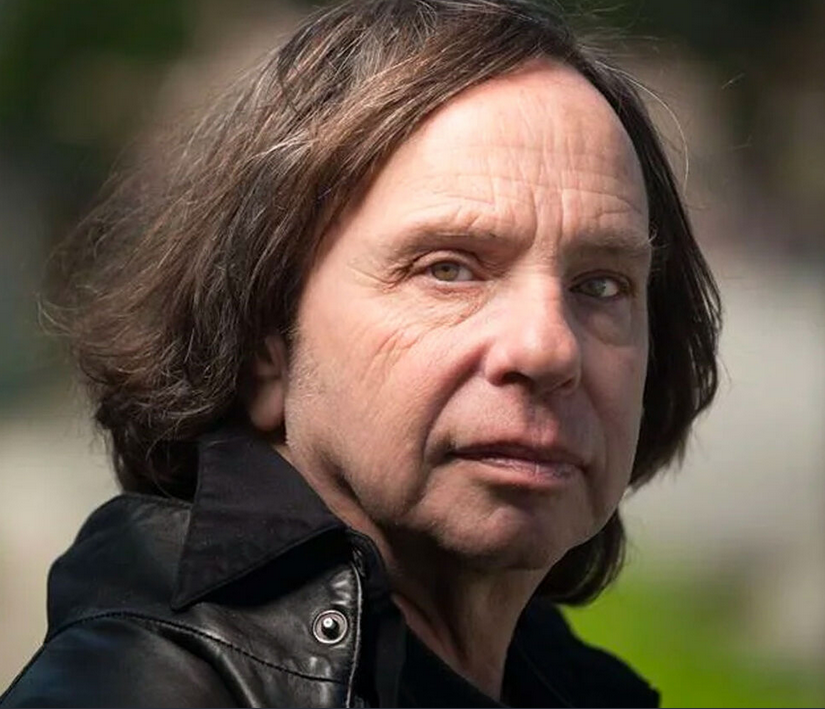Are You Serious?
This is an expanded, written monologue of the Apotheosis podcast episode. Podcast music by Nullsleep.
I'm happy to see this entry for Apotheosis—not just because it's the 10th entry, but because it wraps up the Mondo 2000 3-parter, which followed on the heels of the Boing Boing 3-parter. Revisiting both publications/communities just reminds me too much about how the edgier (experimental would be a more appropriate term) aspects of cyberculture quickly fell to commercialism, leaving those in the community stranded.
Anyway… We conclude this Mondo 2000 arc, by once again traveling backwards in time. This time, going even farther and revisiting the origins of the magazine: Mondo 2000.
Ken Goffman/R.U. Sirius (born in 1952 in Brooklyn) was an aspiring musician and cultural experimenter that began dipping his toe into the public counterculture sphere with the publication of High Frontiers in 1984. As the name implies, High Frontiers was focused on the counterculture aspects of psychedelic experimentation, continuing the exploration of the 70's hippie culture and the mystic 60's, even as Reagan and the conservatives were pushing back against the left libertarian angle of social politics in favor of a return to the more mundane and conservative formula's of the 50's. High Frontiers was billed as "the Space Age Newspaper of Psychedelics, Science, Human Potential, Irreverene & Modern Art."

Goffman struck gold (almost literally) while distributing the first issue of High Frontiers. He would meet Alison Kennedy. Kennedy was the wife of a University of California Berkeley professor, but more importantly, she was the daughter of a wealthy California family. Kennedy joined the High Frontiers team eventually adopting the moniker of Queen Mu. It was Kennedy's inheritance that allowed them to bankroll the magazine. 1
As computers began to gain traction, writers and futurists alike explored the natural conclusions of 80's Reaganomics and corporate fealty married with a highly technical future. Goffman, familiar with Timothy Leary's work on psychedelics, as well as Leary's infatuation with emergent computer systems, followed Leary, as well as the evolving 80's cyberculture, rebranding High Frontiers to Reality Hackers when Jude Milhon joined the magazine in the late 80's, before rebranding once again as Mondo 2000 in 1989.
Mondo 2000, R.U. Sirius, and this strange band of counterculture writers and hackers entered into the early computer revolution zeitgeist as legendary figures. Kennedy's funding allowed the magazine to stay in circulation despite the edgy and obscure content. Additionally, Mondo became more than a magazine as the participants began to slowly merge with their alter egos. Kennedy, herself, was listed on the masthead as "domineditrix"—because everything Mondo had to be laced with sex in some way. During the height of popularity (and cyberpunk interest), the New York Times quoted her as saying "We're dealing with the cultural manifestations of the P.C. revolution." 3 She was right.
Kennedy didn't just fund the magazine, but also owned the "Mondo House" mansion in Berkeley Hills where may of the merry band both lived and worked. The house was infamous for its non-stop parties. The parties at the house were a boon of social exploration and this fed directly into the gonzo-ish magazine's articles, while allowing Mondo 2000 to build on its own mythology.2
Mondo 2000 wasn't everyone's obsession, however, there is little doubt about it's influence on cyberculture.
To some, it was pseudo-intellectual jibberish---or a mere appropriation of the cyberpunk ethic into a glossy magazine. But to the cult following the magazine developed, it all made perfect sense. At a time when few people outside academia had access to the internet, Mondo 2000 was many a wannabe hacker's introduction to the online world.2
For a few short years, Mondo 2000 was the leading voice of the intersection between technology and culture, but it still had a difficult time attracting advertisers to reduce reliance on Kennedy's inheritance. In 1993, Wired magazine launched with similar content, but without the pranking culture, self-indulgent personalities, or explicit drug culture. Goffman left around this same time, and although the magazine continued for several issues, in 1998 it produced its last publication, and an era concluded.
Goffman himself continued with obscure projects, personal networking, writing, music, and various editorial gigs. Keeping his relationship with experimental drug pioneer Timothy Leary (who was a contributing editor for Mondo 2000), Goffman co-authored Leary's last book, Design for Dying. In the late 00's, Goffman was head editor of the transhumanist magazine H+ Magazine, which also faded into obscurity as a publication, but continues as a transhumanist platform. Goffman also launched Acceler8or as a counterculture web site, but that too has been on hiatus since 2017.
Unable to capture his former glory while exploring similar themes, Goffman turned his attention to documenting the history of Mondo 2000. He still pals around with people from the Mondo 2000 era, including writer/podcaster Douglas Rushkoff, and continues to present himself with that quirky, self-indulgent, non-seriousness that might have been a plague on the success of Mondo in the first place—never taking himself too seriously, but also never lacking the ability to feed one's own ego:
I've just been going through conversations from 1993-1994 on The Well computer network about Mondo Vanilli and I can't believe how confident and flip and — well, frankly — funny and brilliant and inspired we were… and so very dedicated to unapologetic absolute absurdism and surrealism. 3
For those who grew up on BBS systems, the early web, and hacking away at computers—those children of the 80's—we wanted Mondo 2000… but we got Wired magazine instead, as the 80's and 90's continued to shift towards reifying the humanity of corporations… at the expense of real people. I often wonder what would have happened if Mondo had won out.